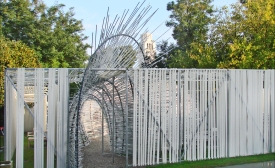morocco
No efforts are more notable than the Kingdom of Morocco, which has erected a formidable “soft-power” strategy against Islamic radicalism over the past decade. That strategy is grounded in religious legitimacy.

Nicholas Cull, Professor of Public Diplomacy and Director of the USC Master of Public Diplomacy program, explores the interplay of cultural heritage and global engagement at the biannual Venice Biennale of Architecture.
The African continent is changing. Strong population and economic growth, natural and agricultural resources, and an emerging middle class have resulted in growth which attracts international investors.
With a slightly strong ‘A’ grade, the kingdom is ranked 31st globally in the ranking conducted by Bloom Consulting, a Spain-based consulting firm specializing in nation branding and destination branding with offices in Madrid, Lisbon and Sao Paulo.
When I introduced the word Moroccanism to academia, I was thinking of a unifying cultural concept that can bring all the Moroccans together whether they consider themselves African, Amazigh, Arab, Hebrew, Mediterranean or Andalusian.
"It is more important now than ever for Americans and the peoples of the Middle East and North Africa to share ideas, knowledge, and skills in order to promote collaboration, enhance economic development and prosperity, address global and regional issues such as climate change, and achieve broader understanding between cultures.”







